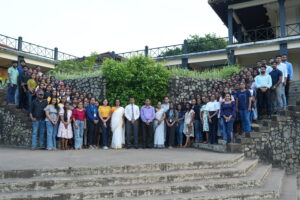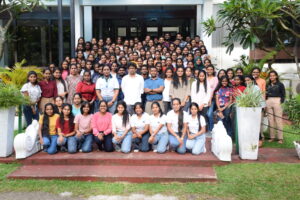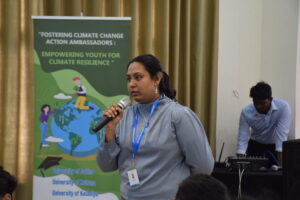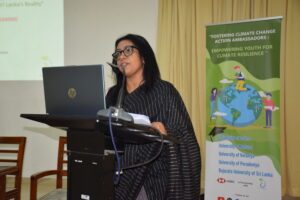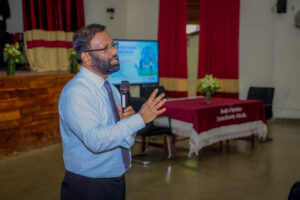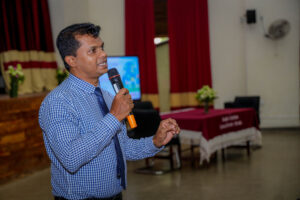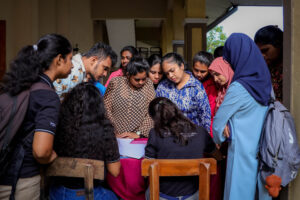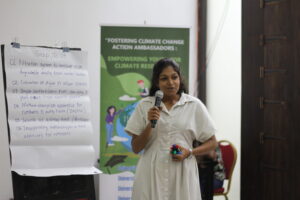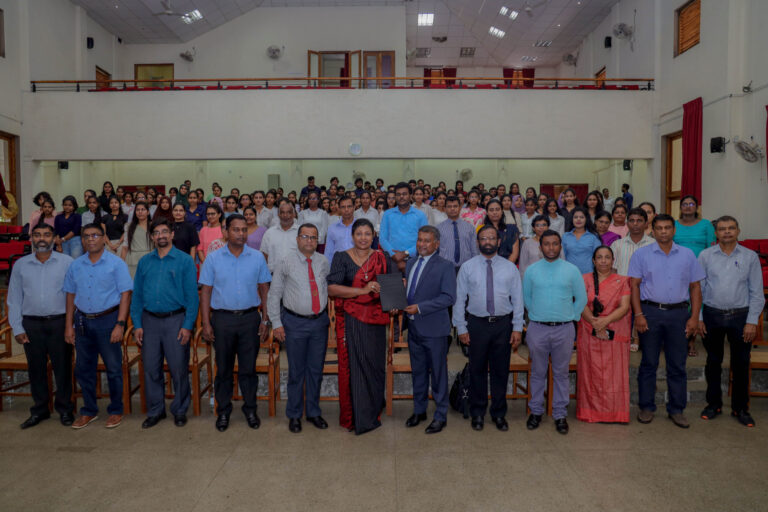
The Fostering Climate Change Action Ambassadors: Empowering Youth for Climate Resilience project is an initiative launched to mobilize university students across Sri Lanka in addressing the pressing challenges of climate change. Implemented in collaboration with five state universities, the project aims to strengthen youth leadership in climate mitigation, adaptation, resilience-building, and responses to loss and damage. Through a structured three-phase approach, the project seeks to equip young people with the knowledge, skills, and support necessary to lead effective climate action within their universities and surrounding communities.
The project has made remarkable progress during the quarter. The first phase, focused on raising awareness and foundational understanding, was successfully completed during this quarter, reaching over 500 students, well above the original target. These students were introduced to essential concepts in climate science, national and international climate policy frameworks, and practical responses to climate related issues. Building on this foundation, nearly 400 students were selected to participate in the second phase of the project, which provided advanced training on key subject areas. These sessions also guided students in identifying existing environmental gaps, referred to as “green gaps”, within their university or community settings and helped them learn how to design practical, context-specific project proposals to address them.
Following the training, 28 student groups submitted their climate action proposals. These proposals were evaluated by a panel of experts, and 15 were selected for implementation based on various criteria, including feasibility, relevance, innovation, and potential impact. With the completion of the second phase, the project has now entered the third and final phase: implementation. Inception visits to each of the five participating universities have been completed, and formal agreements have been signed with the selected student groups. These agreements mark the beginning of on-the-ground implementation, supported by financial assistance, technical mentorship, and continuous monitoring to ensure the success and sustainability of each initiative.
Looking ahead, the project anticipates that these student-led initiatives will not only create positive environmental change within their immediate surroundings but also serve as models for broader climate engagement. The outcomes will be showcased through national platforms, including conferences and publications, providing students with opportunities to share their experiences and scale their ideas. Additionally, efforts are being made to connect participants with long-term climate action networks, allowing them to continue their involvement beyond the project’s timeframe. As the project enters this crucial implementation stage, it stands as a powerful example of youth-led climate leadership and a promising step toward a more resilient future for Sri Lanka.
